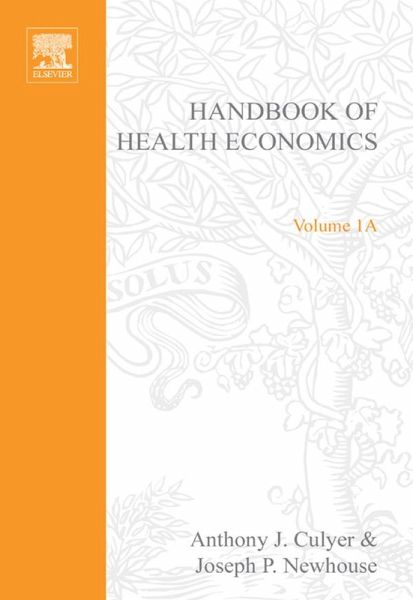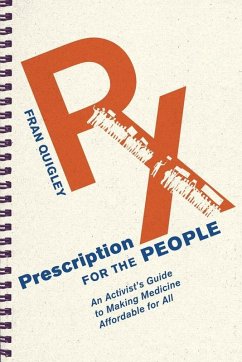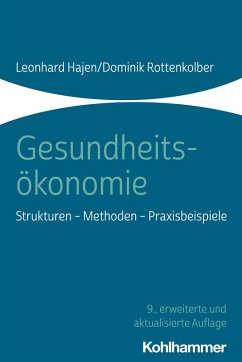
Handbook of Health Economics (eBook, ePUB)
Versandkostenfrei!
Sofort per Download lieferbar
112,95 €
inkl. MwSt.
Weitere Ausgaben:

PAYBACK Punkte
56 °P sammeln!
The Handbook of Health Economics provide an up-to-date survey of the burgeoning literature in health economics. As a relatively recent subdiscipline of economics, health economics has been remarkably successful. It has made or stimulated numerous contributions to various areas of the main discipline: the theory of human capital; the economics of insurance; principal-agent theory; asymmetric information; econometrics; the theory of incomplete markets; and the foundations of welfare economics, among others. Perhaps it has had an even greater effect outside the field of economics, introducing ter...
The Handbook of Health Economics provide an up-to-date survey of the burgeoning literature in health economics. As a relatively recent subdiscipline of economics, health economics has been remarkably successful. It has made or stimulated numerous contributions to various areas of the main discipline: the theory of human capital; the economics of insurance; principal-agent theory; asymmetric information; econometrics; the theory of incomplete markets; and the foundations of welfare economics, among others. Perhaps it has had an even greater effect outside the field of economics, introducing terms such as opportunity cost, elasticity, the margin, and the production function into medical parlance. Indeed, health economists are likely to be as heavily cited in the clinical as in the economics literature. Partly because of the large share of public resources that health care commands in almost every developed country, health policy is often a contentious and visible issue; elections have sometimes turned on issues of health policy. Showing the versatility of economic theory, health economics and health economists have usually been part of policy debates, despite the vast differences in medical care institutions across countries. The publication of the first Handbook of Health Economics marks another step in the evolution of health economics.
Dieser Download kann aus rechtlichen Gründen nur mit Rechnungsadresse in A, B, BG, CY, CZ, D, DK, EW, E, FIN, F, GR, HR, H, IRL, I, LT, L, LR, M, NL, PL, P, R, S, SLO, SK ausgeliefert werden.













